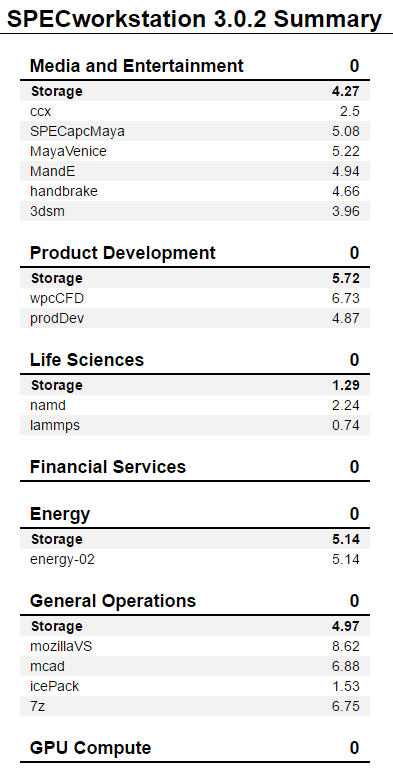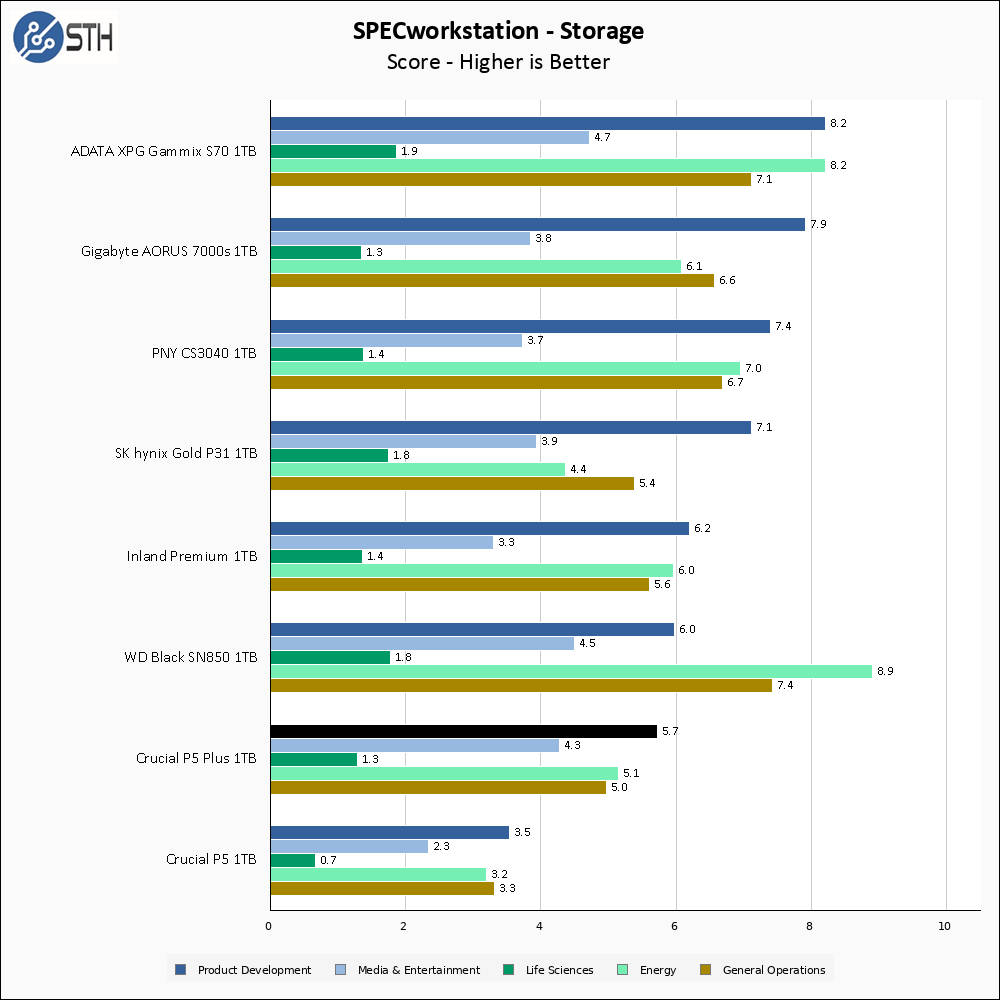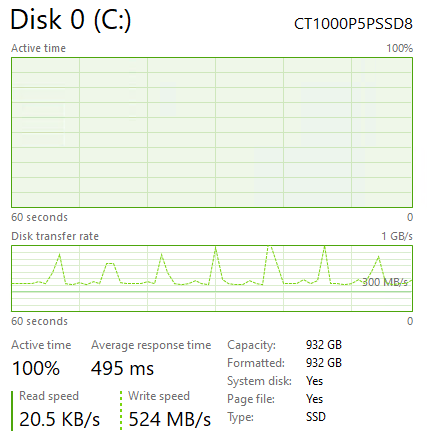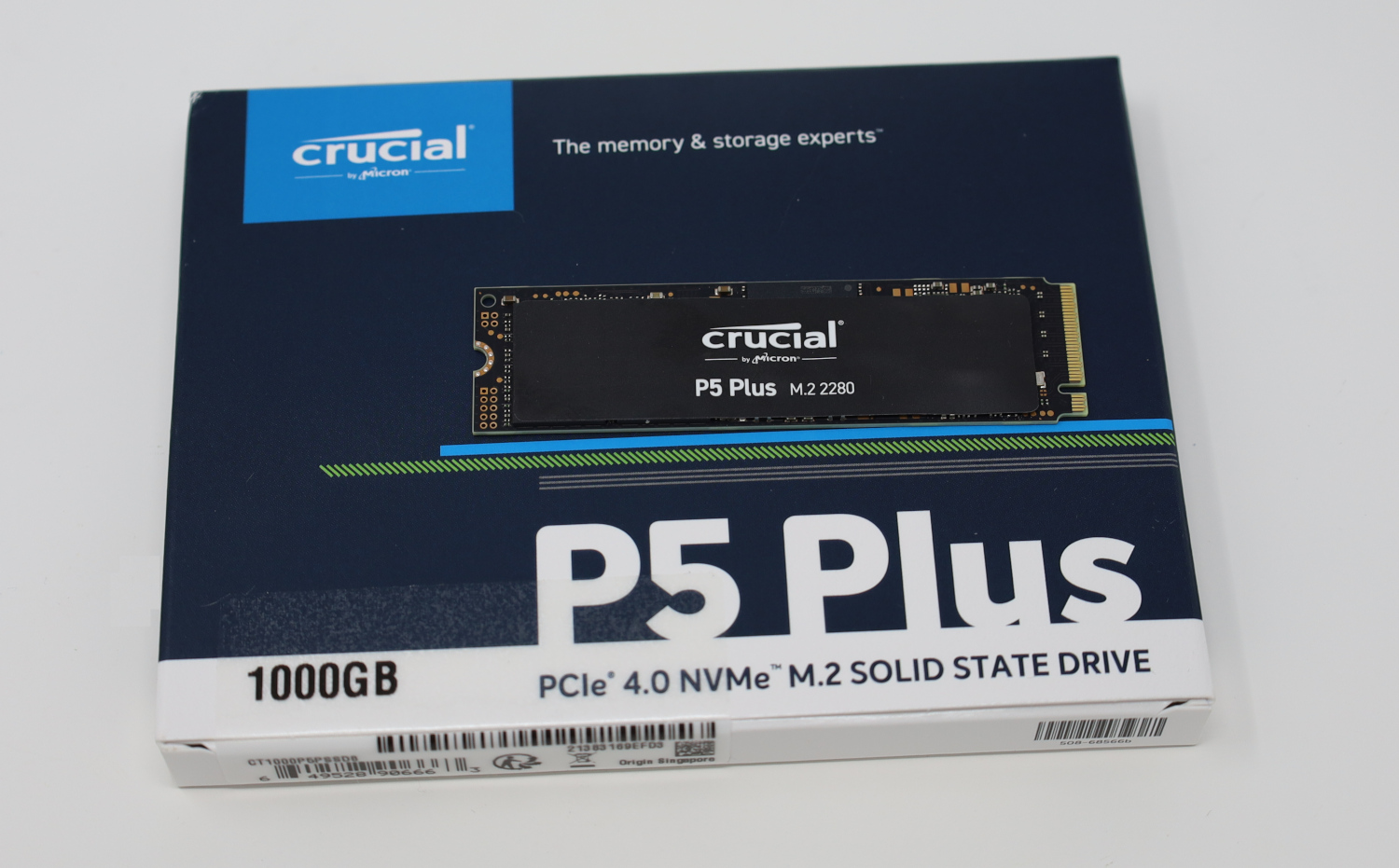SPECworkstation 3.0.2 Storage Benchmark
SPECworstation benchmark is an excellent benchmark to test systems using workstation-type workloads. In this test, we only ran the Storage component, which is fifteen separate tests.


SPECworkstation performance is not a strong point for the Crucial P5 Plus 1TB. None of the results are bad, but none of them are super impressive either. In general, the P5 Plus loses out to most of its PCIe 4.0 competitors.
Sustained Write Performance
This is not necessarily a benchmark, so much as trying to catch the post-cache write speed of the drive. While I am filling the drive with data to the 85% mark with 10 simultaneous write threads, I monitor the drive for the write performance to dip to the lowest steady point and grab a screenshot.


Post-cache write speed on the Crucial P5 Plus is decent at 525 MB/s. The pattern to that performance is a bit strange; the drive will consistently write at ~320 MB/s and every few seconds will spike to close to 800 MB/s, putting the average at 525 MB/s.
Temperatures
We monitored the idle and maximum temperature during testing with HWMonitor to get some idea of the thermal performance and requirements of the drive. Please keep in mind that our test bench is an open frame chassis in a 22C room, but with no direct airflow. As a result, this is not representative of a cramped low airflow case and is instead intended to model temperatures of a drive ‘on its own’.

Earlier I noted that the Crucial P5 Plus does not come with a heatsink, and perhaps it should. During my thermal test, the drive reached 77C, and I went ahead and pointed a fan at it. You will want a heatsink or some ventilation if this drive is going to be under heavy load. Crucial does not seem to offer a first-party heatsink for their drives, so something third party would be your only option.
A note to readers; benchmark testing was performed without the fan; it was only during this initial load that I use for thermal testing that the drive reached these extreme temperatures, and I did not want the presence of different airflow to influence the rest of my results.
Final Words
Today the Crucial P5 Plus 1TB is $145 on Amazon; that is a decent price point for this drive, as it manages to undercut the WD Black SN850 1TB at $165 and the Samsung 980 Pro 1TB at $170. Unfortunately, the XPG GAMMIX S70 is only $150 and comes with a heatsink. If the Crucial P5 Plus was $10 cheaper it would be much more exciting.

The Crucial P5 Plus 1TB is fine. That is a bit of a boring conclusion, but the P5 Plus is a bit of a boring drive. It lacks a standout feature to differentiate it from the pack, and really the best thing going for the P5 Plus is the Crucial name. If the price drops just a little, or if perhaps you are planning on installing your drive into a M.2 slot that has an integrated heatsink, then the P5 Plus can be considered as a no-nonsense SSD option.




Are the fluctuations and peaks in the sustained write performance graph the result of thermal throttling or cache effects?
What about “Integrated power loss immunity” feature? Is there supercapacitor on board, or how is it working? What I have understood, is that this feature is not common on M.2 drives, or perhaps not exist on any other M.2 drive. I think this would be superb drive for low budget server.
Qué consumo tiene en reposo? parece ser que es muy alto, sobre 1,3w mientras que los de la competencia están por 0,003w.